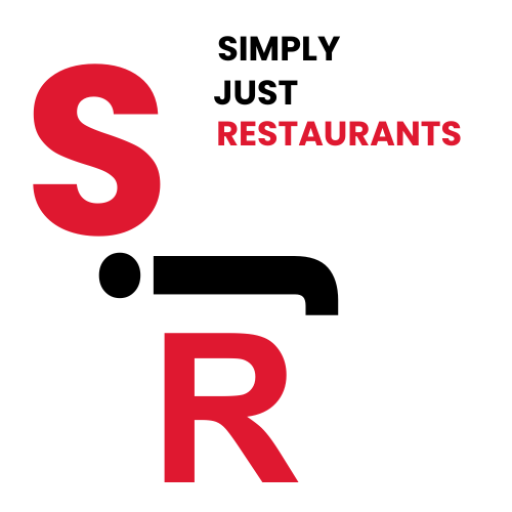The hospitality industry is a broad and dynamic sector that encompasses various services, including lodging, food and beverage, event planning, and travel. While many people are familiar with the basic operations of hotels and restaurants, there are numerous lesser-known aspects that contribute to the complexity and intrigue of the industry.
This comprehensive guide will delve into five surprising facts about the hospitality industry, providing detailed insights and step-by-step explanations.

The Role of Technology in Modern Hospitality
Overview
Technology has revolutionized the hospitality industry, enhancing guest experiences and streamlining operations. From booking systems to smart rooms, technological advancements have become integral to the industry.
Step-by-Step Details
- Online Booking Systems:
- Evolution: Transition from manual bookings to online platforms.
- Benefits: Increased convenience, real-time availability, and broader reach.
- Example: Platforms like Booking.com and Airbnb have transformed how people book accommodations.
- Customer Relationship Management (CRM):
- Function: Helps businesses manage interactions with current and potential customers.
- Benefits: Personalized guest experiences, targeted marketing, and improved customer loyalty.
- Tools: Software like Salesforce and Zoho CRM.
- Smart Rooms and IoT:
- Definition: Integration of Internet of Things (IoT) devices in hotel rooms.
- Features: Automated lighting, climate control, and voice-activated services.
- Example: Hilton’s Connected Room allows guests to control room settings via their smartphone.
- Self-Service Kiosks:
- Purpose: Enable guests to check in and out without front desk assistance.
- Benefits: Reduced wait times, enhanced efficiency, and improved guest satisfaction.
- Implementation: Common in airports and increasingly in hotels.
- Mobile Apps:
- Usage: Facilitates booking, room service, and concierge services.
- Advancements: AI-driven chatbots for instant customer support.
- Example: Marriott’s mobile app offers check-in/check-out, room selection, and keyless entry.

Sustainability Practices in Hospitality
Overview
Sustainability has become a crucial aspect of the hospitality industry, with businesses adopting eco-friendly practices to reduce their environmental impact.
Step-by-Step Details
-
Energy Efficiency:
- Practices: Use of energy-efficient appliances, LED lighting, and renewable energy sources.
- Benefits: Reduced energy consumption and operational costs.
- Examples: Solar panels, wind turbines, and geothermal heating.
-
Water Conservation:
- Strategies: Low-flow faucets, showers, and toilets; water recycling systems.
- Impact: Significant reduction in water usage and waste.
- Example: Hotels installing rainwater harvesting systems.
-
Waste Management:
- Programs: Recycling, composting, and waste-to-energy initiatives.
- Goals: Minimize landfill waste and promote sustainable waste disposal.
- Example: Zero-waste hotels that aim to send no waste to landfills.
-
Sustainable Sourcing:
- Policy: Sourcing locally-produced, organic, and fair-trade products.
- Benefits: Supports local communities and reduces carbon footprint.
- Example: Restaurants adopting farm-to-table concepts.
-
Green Building Certifications:
- Standards: LEED (Leadership in Energy and Environmental Design) and Green Key certification.
- Recognition: Buildings that meet high environmental and energy efficiency standards.
- Example: Hotels achieving LEED certification for sustainable building practices.

The Importance of Cultural Sensitivity and Diversity
Overview
Cultural sensitivity and diversity are essential in the hospitality industry, fostering inclusivity and enhancing guest experiences.
Step-by-Step Details
-
Cultural Awareness Training:
- Purpose: Educate staff on different cultures, customs, and etiquette.
- Benefits: Improved guest relations and satisfaction.
- Implementation: Regular training sessions and workshops.
-
Inclusive Marketing:
- Strategies: Develop marketing campaigns that reflect diverse cultures and demographics.
- Examples: Multilingual advertisements, culturally relevant promotions.
-
Diverse Workforce:
- Benefits: Diverse teams bring varied perspectives and ideas, improving service quality.
- Hiring Practices: Implementing inclusive recruitment strategies.
-
Culturally Adapted Services:
- Customization: Tailoring services to meet the cultural preferences of guests.
- Examples: Offering halal food, celebrating cultural festivals, providing multilingual staff.
-
Respect for Local Traditions:
- Practices: Respecting and incorporating local customs and traditions into service offerings.
- Impact: Enhances guest experiences and promotes cultural appreciation.

Career Opportunities and Growth in Hospitality
Overview
The hospitality industry offers numerous career opportunities and pathways for growth, attracting individuals from various backgrounds.
Step-by-Step Details
-
Entry-Level Positions:
- Roles: Front desk staff, housekeeping, food service.
- Growth Potential: Opportunities for advancement with experience and training.
-
Management Roles:
- Positions: Hotel manager, restaurant manager, event coordinator.
- Requirements: Typically require experience and higher education in hospitality management.
-
Specialized Roles:
- Fields: Marketing, finance, human resources, IT.
- Benefits: Allows professionals to leverage their expertise within the hospitality context.
-
Training and Development:
- Programs: In-house training, hospitality management courses, certifications.
- Examples: Certified Hospitality Supervisor (CHS), Certified Hospitality Administrator (CHA).
-
Global Opportunities:
- Expansion: Many hospitality companies operate internationally, offering global career opportunities.
- Experience: Working in different cultural settings enhances skills and career prospects.

Conclusion
The hospitality industry is multifaceted, with numerous aspects that are often overlooked. From technological advancements and economic contributions to sustainability practices, cultural sensitivity, and career opportunities, there is much more to the industry than meets the eye. Understanding these lesser-known aspects can provide valuable insights for those working in or considering a career in hospitality.
About Author nikita kapali
You May Also Like…
The Ultimate Guide to Hiring a Consultant Chef
Introduction Food trucks or mobile food trucks is an idea that has arrived. But, there is a issues with food safety in...
Food Safety Essentials: Addressing 5 Common Problems in Food Trucks
Introduction Food trucks or mobile food trucks is an idea that has arrived. But, there is a issues with food safety in...



